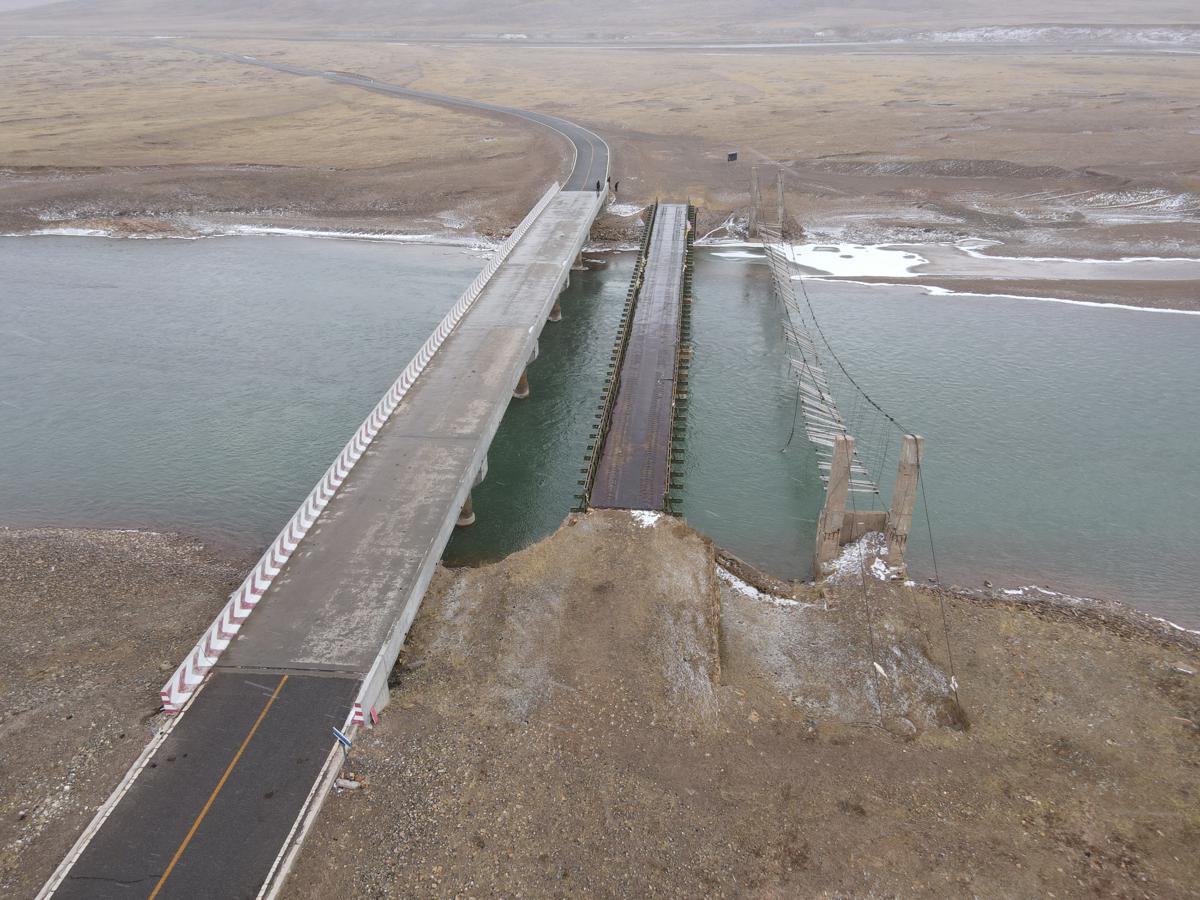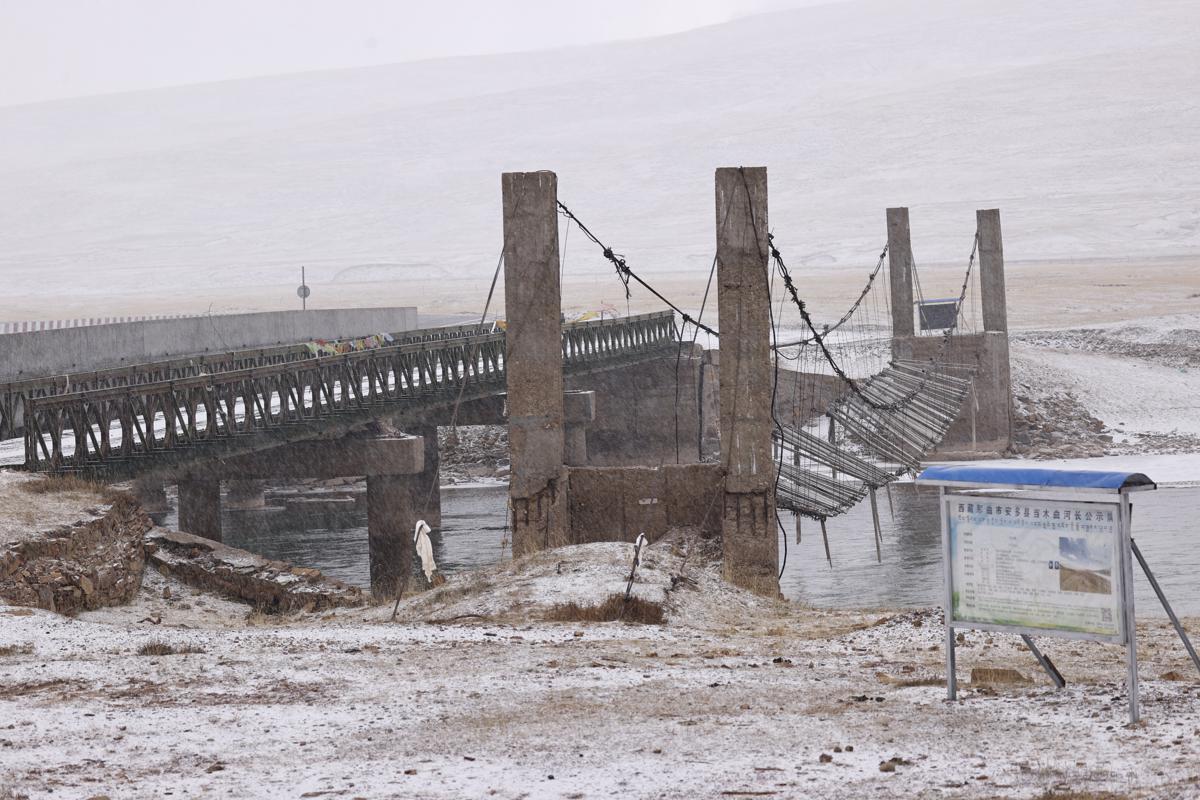Bridges to prosperity make a difference in Xizang
Updated: 2024-10-25 By Daqiong and PALDEN NYIMA in Nagchu, Xizang (chinadaily.com.cn)  Print
Print 


In a remarkable tale of progress and development, the Bamrom Bridges spanning the Damchu River in Amdo county of the Xizang autonomous region have become symbols of historic change and rural growth.

A view of the three bridges spanning the Damchu River in Amdo county, Xizang autonomous region. The bridges have transformed life in the area. [Photo by Palden Nyima/chinadaily.com.cn]
These bridges, which illustrate the evolution of infrastructure, have significantly impacted the lives of residents living along the river, where the altitude is greater than 4,500 meters above sea level.
Decades ago, nomads from the county's Doma township had to make arduous journeys to reach neighboring towns. The absence of proper bridges meant perilous crossings. In summer, isolation loomed, as rising river waters cut off vital connections, leaving communities stranded until winter's freeze allowed for limited transport.
Improvements began in 1987 when a simple wooden bridge was erected, offering a modest upgrade for foot traffic but still limiting vehicular access. Subsequent developments saw the construction of a steel truss bridge in 1997, followed by a pivotal moment in 2013 with the completion of a cement bridge, now known as the Bamrom Bridge.
This final iteration revolutionized local travel, providing a safe and reliable passage for pedestrians, animals and vehicles.

A view of the three bridges spanning the Damchu River in Amdo county, Xizang autonomous region. The bridges have transformed life in the area. [Photo by Palden Nyima/chinadaily.com.cn]
Gadre, a 61-year-old resident who participated in the construction of the original wooden bridge at the age of 24, vividly recalls the challenges faced by the community in the absence of quality infrastructure.
He recently reflected on the transformative impact of the bridges and commended the government's commitment to enhancing people's livelihoods and fostering progress. For him, the improved infrastructure not only ensures safe passage but symbolizes a brighter future for residents.
He remembered one summer when his family needed to cross the river, but the water had risen. He spent more than a month waiting for the right moment to cross.
"It was very dangerous without a bridge decades ago. People would hold onto horse tails to cross, and many were swept away by the ruthless river. I saw a monk being washed away," he said.
He said that over the past few decades, the government has been dedicated to improving livelihoods, and the quality of bridges has improved steadily.
"Now, local people can travel safely, and even large vehicles can cross the bridge without worries," he said.








